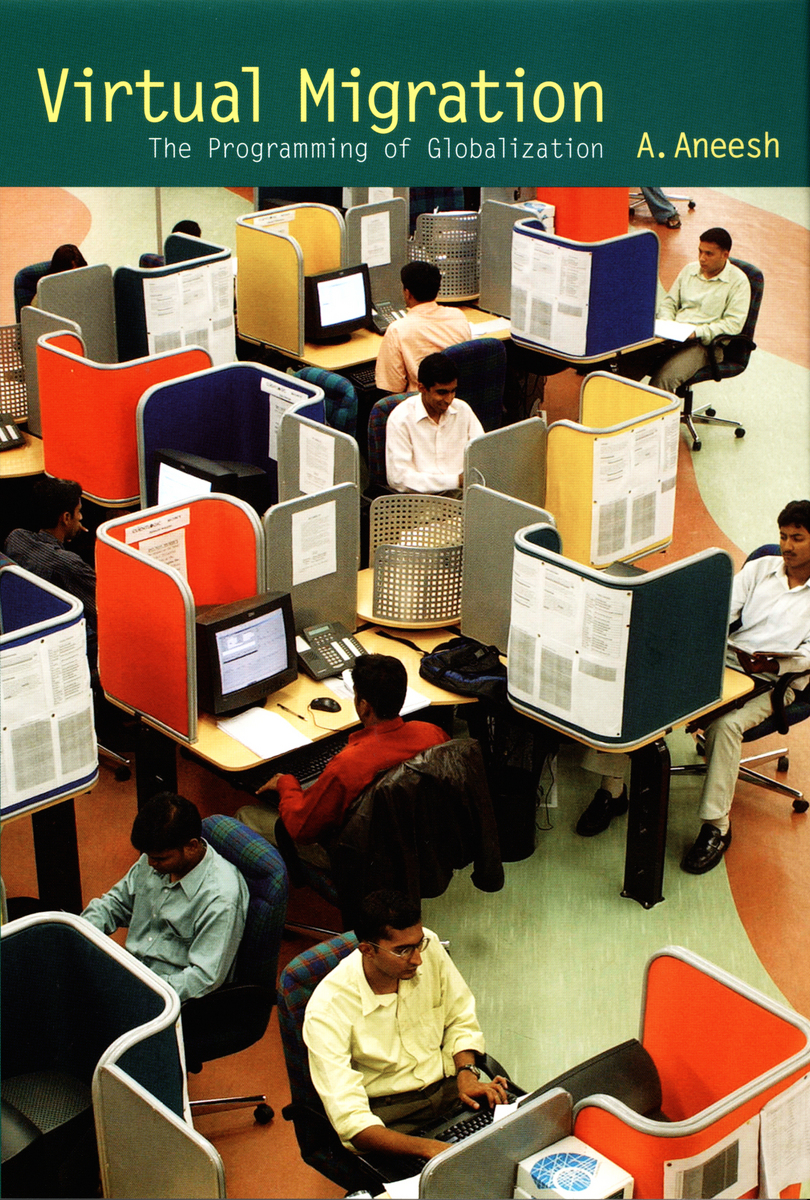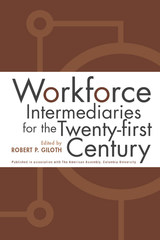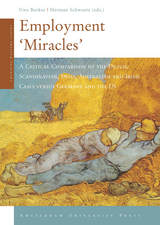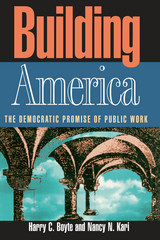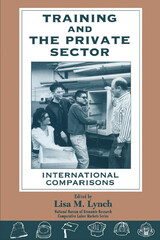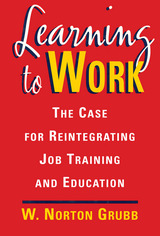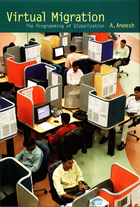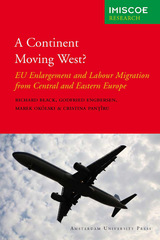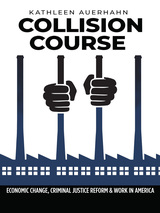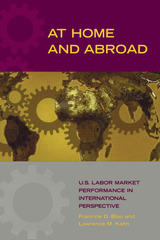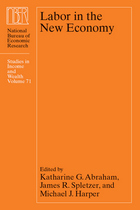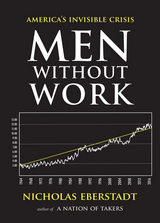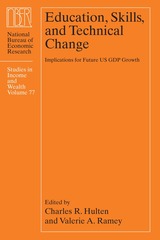Cloth: 978-0-8223-3681-5 | eISBN: 978-0-8223-8753-4 | Paper: 978-0-8223-3669-3
Library of Congress Classification HD5717.A54 2006
Dewey Decimal Classification 331.1
Aneesh draws on the sociology of science, social theory, and research on migration to illuminate the practical and theoretical ramifications of virtual migration. He combines these insights with his extensive ethnographic research in offices in three locations in India—in Delhi, Gurgaon, and Noida—and one in New Jersey. Aneesh contrasts virtual migration with “body shopping,” the more familiar practice of physically bringing programmers from other countries to work on site, in this case, bringing them from India to New Jersey. A significant contribution to the social theory of globalization, Virtual Migration maps the expanding transnational space where globalization is enacted via computer programming code.
See other books on: Contracting out | Effect of technological innovations on | Information technology | Labor supply | Programming
See other titles from Duke University Press
